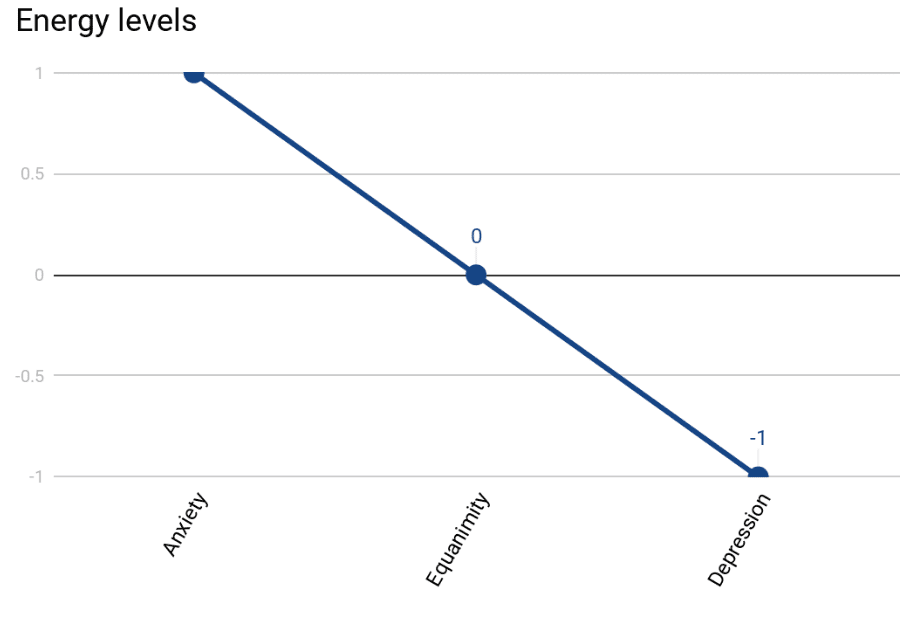My default state used to be anxiety, with some fear thrown in for good measure. I don’t know why. For whatever reason, I’m just prone to feeling anxious without any apparent cause.
Over the last 20 years, though, my anxiety lessened as I learned and then practiced meditation. My first experience was a mindfulness meditation workshop. Perhap you can imagine that after living with the suffering of anxiety and fear throughout my life, it was like spotting an island oasis in the stormy seas of life.
It all started, in fact, by saying yes to the friend who invited me, with an openness to giving it a try. I can’t overstate how much this one yes ended up altering the course of my life. Looking back, this was the voicing of my aspiration to overcome my anxiety.
Honestly, although the leader talked to us about how to meditate, I don’t remember much of what she said. I do remember, though, that she guided us to pay attention to the breath in our bodies. Something so simple, yet life changing.
Practice and discipline are the art and science of meditation
If you want to reduce anxiety, my advice is to take consistent and manageable steps forward. As a professional counsellor, a meditator, and a Mindfulness Based Stress Reduction teacher I’ve got a lot of personal and professional experience.
In writing this, I want to share with you some of what I’ve found works to reduce anxiety. Experiment with them, see what works for you, and trust that there’s something you can do about it.

1) Build a routine around your meditation
Choose a place to sit in your home and use it consistently six days a week. (Take the same day off every week.)
Create conditions that support a healthy routine: practice at the same time, use the same chair or cushion, turn off distractions and set a timer. Don’t let yourself be seduced away from your practice during this set and sacred time.
Our body/consciousness learns that this is the time and place to do this. We are training ourselves like parents train children. Structure and routine are super helpful. After a while we don’t need to think about whether we should do it, we can rest into the healthy habit of it.
2) Pay attention to your thoughts throughout the day
Are they anxious, neutral, or depressed? Imagine a continuum and on one end is activated energy (anxiety), in the middle of the line is neutral (equanimity) and on the other end is a lack of energy (depressed, asleep). Can you, without any judgement, start to notice where your thoughts are on that line?

Activated energy?
Neutral?
Lack of Energy?
Remember, no judging. In this experiment we are just gathering data and getting to know ourselves. Try to bring a light curiosity into the exploration. Where are you on the continuum and for what amount of time?
3) Record your mind states over time
Our mind states are like the weather. What is happening inside shows up on the outside. And once it’s blown through, our memory can be inaccurate as to the magnitude of the event itself. What’s more, we tend to remember the negatives while sometimes not even noticing the positives.
It is easier to be accurate if we keep a record of some kind. So whether its recording your dreams or jotting down a few notes in a journal, record some indication of your state of mind generally every week and then make sure you look back once a year to see how it has changed. Build this into an easy-to-remember routine.
Asking friends or family can also be a way to get an outside gauge of our “internal weather”.
4) Using a teacher, guide, or mentor is always the best way forward
Unfortunately our culture still upholds the great individual as a role model to aspire to – the cowboy, the explorer. It’s kind of a fun and romantic dream and makes a good movie plot – but it’s not a plan for a happy life.
I ask you, how many things have you truly learned without anyone else’s input? Really, we are dependent on the sun, the air, the earth, the people who birthed us, those who grow and deliver our food, cook our food, invented electricity, plumbing, stoves, fire, cookery…on and on. We are interdependent on each other.
Many thousands of people have transcended their anxiety and we can benefit and learn from their experiences. Use your elders! And I mean that in the most respectful of ways. Let them know you appreciate and honour them.
Obviously, then, I had a good experience that first time meditating. I caught a glimpse of space, quietude, and calm in my mind. I now know that it went so well not so much because of anything I did, but from riding on the back of previous karma and lifetimes of work by other people.
The teaching lineage I am a part of is not about being all calm and peaceful, although this is a good place to start especially for those of us prone to anxiety.
Wisdom traditions tell us we have to calm the system first and then we wake it up. Many who came before have done that, and we can do it, too.
By Maureen Smith. Edited by Andrew Rogers
Check out our Great Healing blog series, and join our mailing list for exclusive content and new of upcoming programs.


